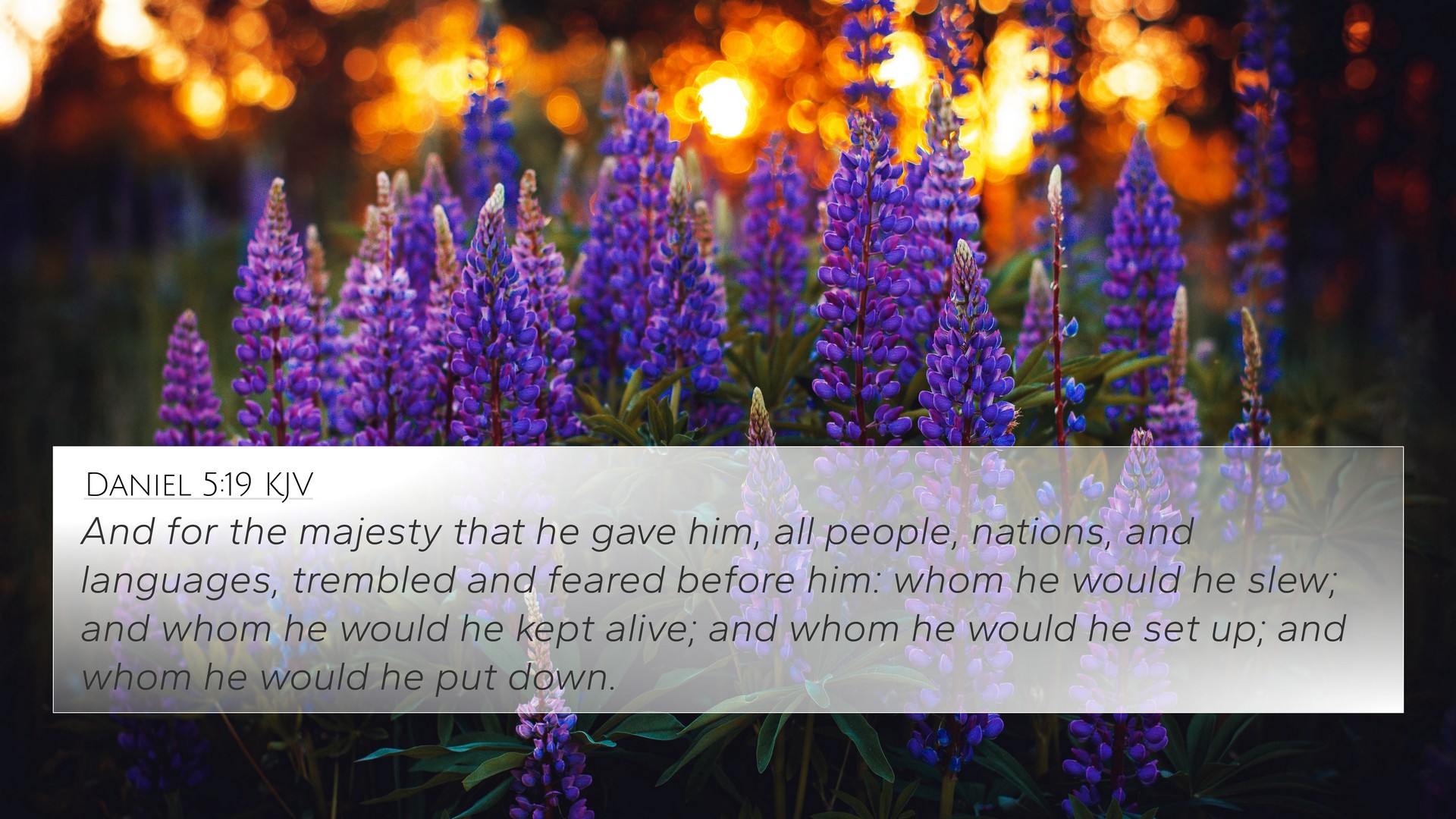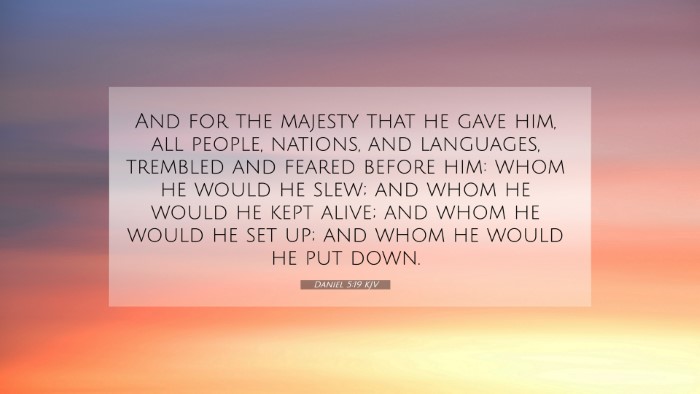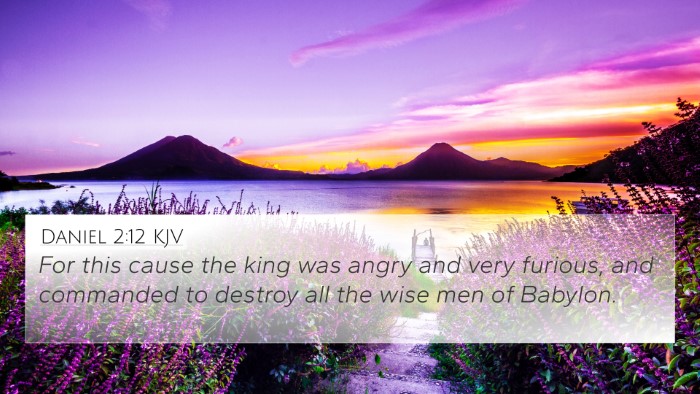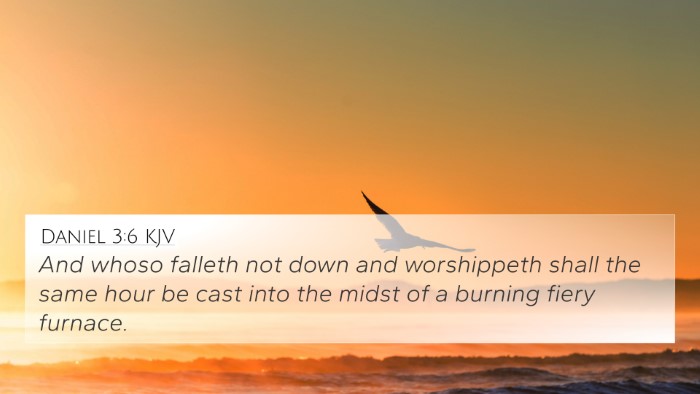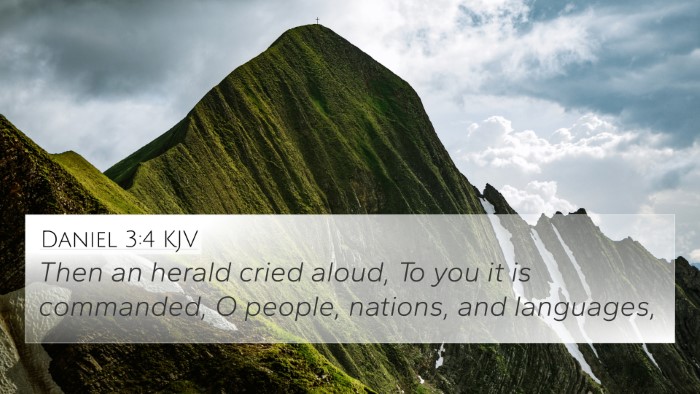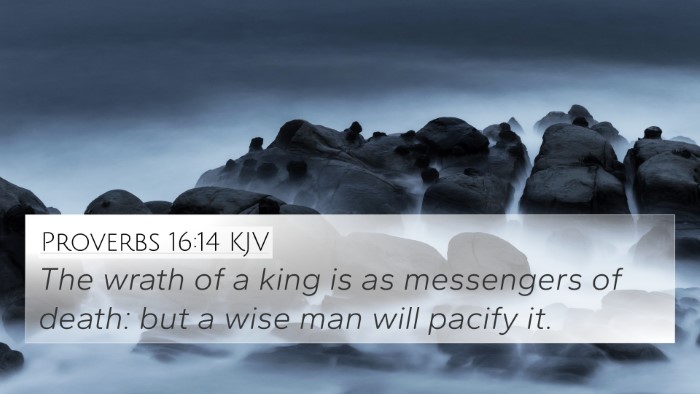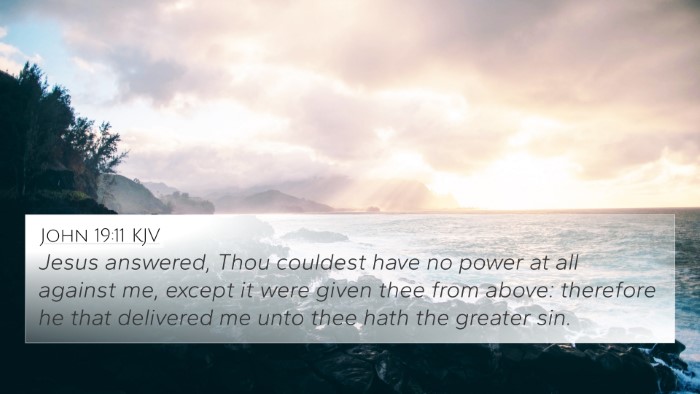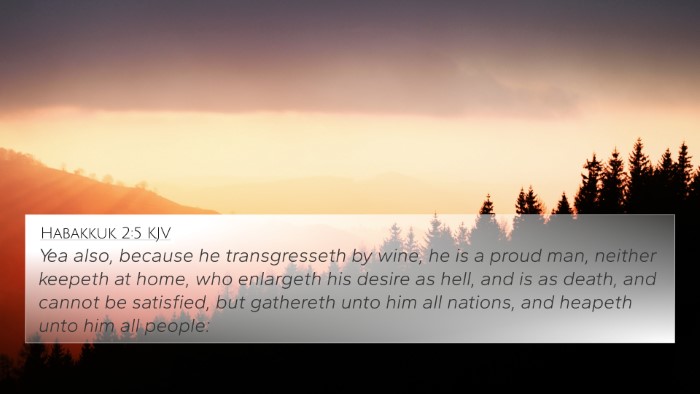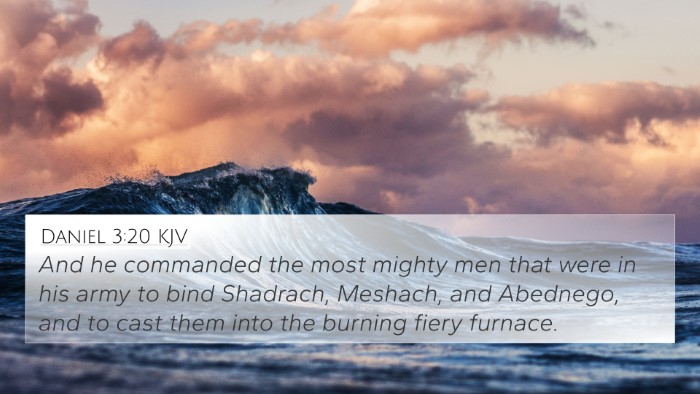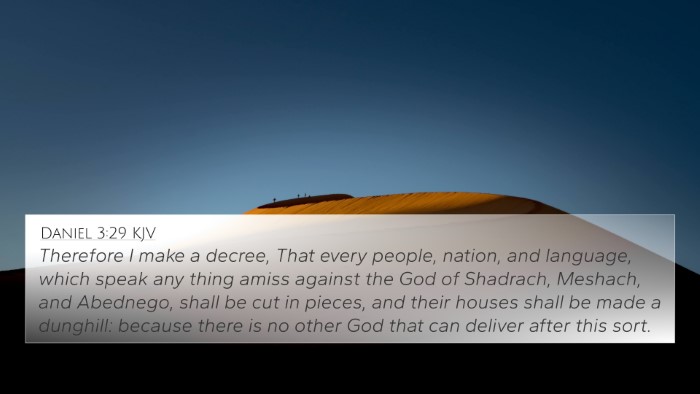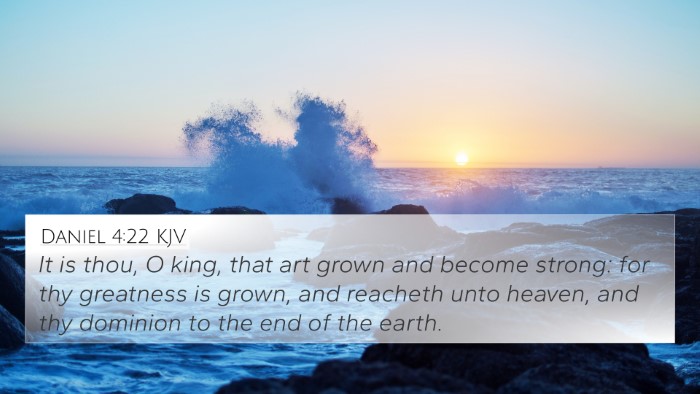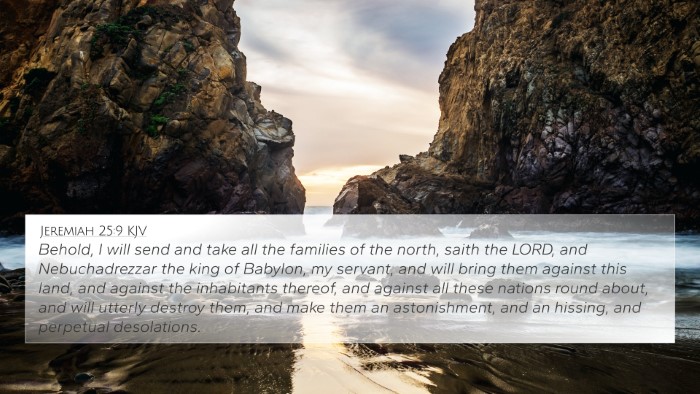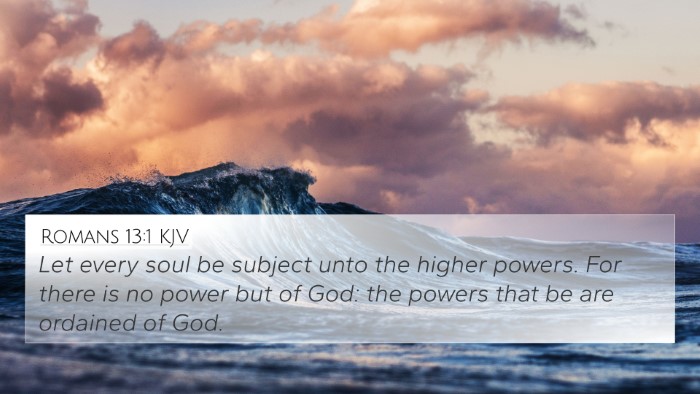Understanding Daniel 5:19: A Comprehensive Analysis
Daniel 5:19 presents a significant moment in biblical history, where the powerful king Nebuchadnezzar, through the wisdom and insight conveyed to him by the God of heaven, is reminded of his reign's substantial weight. This verse reads:
"And for the majesty that he gave him, all peoples, nations, and languages trembled and feared before him." (Daniel 5:19, NKJV)
Exegesis and Thematic Insights
This verse encapsulates a larger narrative about pride, power, and divine authority. Here are the combined insights from Matthew Henry, Albert Barnes, and Adam Clarke:
-
Divine Authority:
Henry emphasizes that the majesty and power attributed to Nebuchadnezzar was ultimately bestowed by God, highlighting the sovereignty of God over earthly kings.
-
The Nature of Kingship:
Barnes points out that the reverence and fear shown towards Nebuchadnezzar reflect the understanding that God’s authority extends through human leaders. The fear of man can serve as a reminder of God's ultimate authority.
-
Pride and Punishment:
Clarke notes that Nebuchadnezzar’s downfall is a theme that resonates throughout scripture, as pride leads to disgrace. The fear felt by nations indicates the consequences of divine judgment when pride is unchecked.
-
The Image of God’s Power:
Henry associates the trembling of peoples before Nebuchadnezzar with the biblical understanding of God’s power to instill fear and reverence, illustrating a troubling human tendency to worship created beings rather than the Creator.
Cross-References to Enhance Understanding
To deepen the understanding of Daniel 5:19, various cross-references throughout scripture can be examined, making connections between biblical texts:
- Psalm 75:7: "For it is God who judgeth: he putteth down one, and setteth up another." This verse emphasizes God's role in elevating and lowering kings, mirroring the theme found in Daniel 5:19.
- Isaiah 14:12-15: The fall of Lucifer analogizes the fall of Nebuchadnezzar due to pride, showing that no one, not even kings, can claim higher authority than God.
- Proverbs 16:18: "Pride goeth before destruction, and a haughty spirit before a fall." This highlights a direct connection concerning the dangers of pride that lead to disgrace.
- Jeremiah 27:6: God gives nations into the hands of Nebuchadnezzar, drawing attention to the divine authority in human governance.
- Romans 13:1: "Let every soul be subject unto the higher powers..." This New Testament passage reiterates the concept of submitting to authorities established by God.
- Revelation 1:5: The ultimate authority of Christ over kings resonates with Daniel’s exploration of divine majesty and power over earthly rulers.
- Ezekiel 28:17: Describes the downfall of a proud king, paralleling Nebuchadnezzar's fate, indicating how pride brings judgment.
Connecting Themes: Comparative Bible Verse Analysis
The parallels drawn through these scriptural connections establish a robust framework for the thematic exploration of pride, authority, and divine retribution seen broadly across biblical narratives. Here is a comparative analysis:
-
Power and Responsibility:
Roles of kingship, such as that of Nebuchadnezzar, illustrate that with great power comes the responsibility to acknowledge God’s sovereignty, a concept reaffirmed in both Old and New Testaments.
-
Pride’s Consequences:
Interwoven narratives regarding pride serve as a warning throughout scripture. Cross-referencing instances of pride within the lives of biblical characters offers insight into moral lessons applicable today.
Tools for Bible Cross-Referencing
For those engaged in a deeper study of scripture, utilizing tools for cross-referencing is essential. Here are several Bible reference resources:
- Bible Concordance: A valuable tool to find verses related to specific keywords, enhancing understanding of biblical themes.
- Bible Cross-Reference Guide: These guides can help navigate connections between various verses, aiding in comprehensive Bible studies.
- Cross-Reference Bible Study: Methods for exploring the interconnectedness of scripture foster greater insight into complex themes.
Conclusion
Daniel 5:19 and surrounding narratives invite readers to explore the ramifications of pride and the ultimate authority exerted by God over human powers. Through carefully examining cross-references, one gains a broader understanding of not only this particular verse but also an array of biblical truths that interlink throughout scripture.
By engaging in cross-referencing and exploring these themes and connections, readers can deepen their biblical understanding and enrich their study of the Word.
